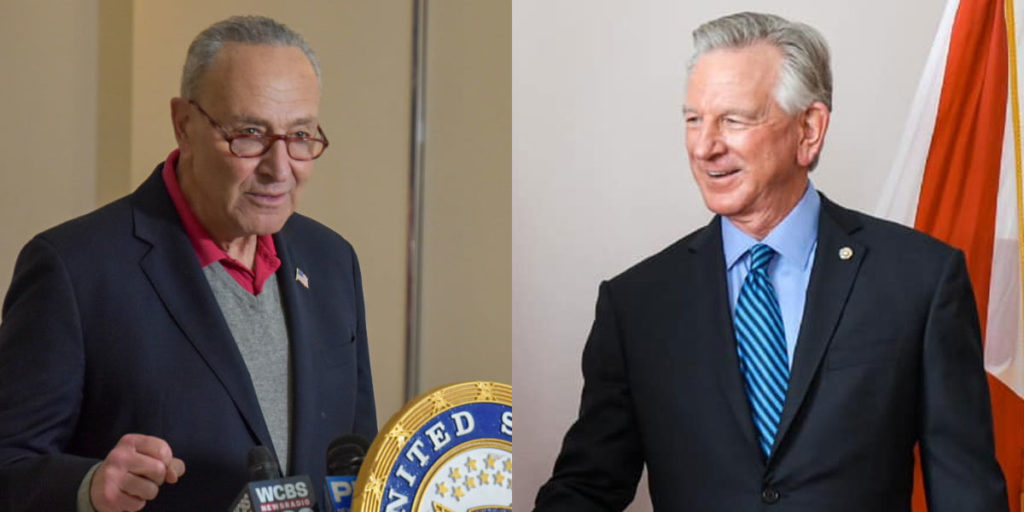
Alabama tops the country in public corruption, according to a new study examining perceptions of wrongdoing across the country.
The report by Illinois State University’s Institute for Corruption Studies ranks Alabama as the most corrupt state in the union for 2017 when it comes to what researchers call “legal corruption” — conduct by public officials that is technically legal but unethical. The state comes in second, behind Kentucky, in “illegal corruption,” conduct that is out-and-out against the law.
Oguzhan Dincer, director of the institute, said the findings have been mostly consistent since he and research partner Michael Johnston conducted their first annual study in 2014.
“Quite frankly, it’s been pretty sticky, especially states like Alabama,” he said. “Once a state becomes corrupt, it stays corrupt for a while.”
Dincer and Johnston, an emeritus professor at Colgate University, started the project when they were fellows at Harvard Law School’s Edmond J. Safra Center for Ethics.
Dincer said other studies have tried to quantify corruption by examining conviction data. But he said that method has some drawbacks. For instance, he said, prosecutors in one state may be more aggressive than prosecutors in another. He also pointed to research indicating a partisan bias — Democratic prosecutors are more eager to pursue Republican wrongdoing, and vice versa.
What’s more, Dincer said, the Department of Justice’s definition of corruption is broad. He said it counts a postal worker who steals mail and an assistant district attorney who snorts cocaine, for example. He said neither would seem to fall into the same category as a politician on the take.
So Dincer and Johnston sought to solve those problems by turning to the people who should know the most — journalists who cover state government. He said it is modeled after groups like Transparency International, which ranks country-by-country corruption by polling citizens.
Dincer said asking journalists has the advantage of zeroing in on the men and women who spend their careers watching government up close.
“Instead of randomly selecting thousands of individuals in every state, we decided to ask reporters,” he said. “We thought they would know better.”
Dincer’s team surveyed 1,000 journalists covering state politics, getting responses from 48 states. They rated their perception of corruption on a scale of 1 to 5 for the executive, legislative and judicial branches.
Alabama’s composite score for all three branches was 11 points for “illegal corruption” and 13 for “legal corruption.” It was not significantly different from 2014, when Alabama was tied for sixth in legal corruption with 11 points and tied for fourth for illegal corruption with 9 points.
Dincer said the difference between one place in the rankings and the spot just below or above it is not large enough to be significant. He said it is more useful to group states. And Alabama consistently ranks in that top tier in the corruption index. The 2017 ranking put Alabama in the top group when it comes to both kinds of corruption for all three branches.
Perhaps that is not a surprise considering the heads of all three branches have left office involuntarily in the last few years. Robert Bentley resigned as governor last year after pleading guilty to criminal charges related to misuse of state resources to conceal an affair with an adviser. A 2016 criminal conviction cost Mike Hubbard his job as speaker of the state House of Representatives. And a state judicial committee suspended Roy Moore as chief justice of the state Supreme Court for his conduct following a federal judge’s ruling striking down the state’s ban on same-sex marriage in 2015.
Dincer acknowledged that relying on journalists has drawbacks, too. He said it is inherently subjective and prone to swings depending on high-profile cases. But he said he is convinced that the advantages outweigh the shortcomings compared to other methods and hopes to build 10 years’ worth of data to track changes in perception and policy.
“None of them is perfect,” he said. “And all are telling you different stories.”
Brendan Kirby is senior political reporter at LifeZette.com and a Yellowhammer contributor. He also is the author of “Wicked Mobile.” Follow him on Twitter.












